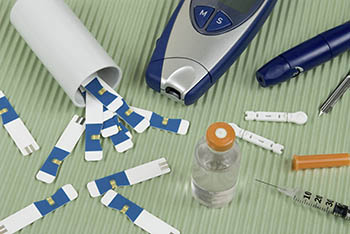Metformin is Big Pharma's pride and joy when it comes to diabetes. Over 120 million diabetics take this drug to try to control their blood sugar.
Even anti-aging doctors have gotten on the bandwagon. They think metformin is a wonder drug. My colleagues keep asking me when I'm going to start prescribing it.
Short-term, drugs can be a lifesaver. But long-term, the track record is not so good.
Long term, like so many of Big Pharma's "cures," metformin creates more problems than it solves…
Patients often stay on this drug for 10 years… 20 years… and more. That's a long time to be on any drug. And over the long haul it takes a real toll on people and their health.
For one thing, metformin interferes with your body's ability to absorb vitamin B12. And studies prove it…
Researchers in South Africa recently tested B12 levels in 121 diabetics. The patients had been taking metformin for at least three years. Some were on it for as many as 16 years. Results showed that 28.1% of the patients were deficient in vitamin B12.1
That's tragic… because B12 is critical to your health. It helps maintain your nervous system and spinal cord. And it helps regulate nerve transmissions.
 In fact, nerve damage from lack of B12 can lead to neuropathy. That's a common complication of diabetes. When neuropathy strikes, you can have:
In fact, nerve damage from lack of B12 can lead to neuropathy. That's a common complication of diabetes. When neuropathy strikes, you can have:
- Tingling and numbness in your hands, feet, arms and legs
- Loss of ability to feel pain
- Loss of coordination
- Burning or shooting pains
- Muscle twitching and cramps
- Muscle weakness and wasting
- Paralysis
Neuropathy is just one of many bad things that can happen to you if your B12 is low…
When you don't get enough B12 you could have anemia… weakness… fatigue… brain fog… confusion… headaches… incontinence… memory loss… anxiety… depression… dementia. And the list goes on.
Even if you're not taking metformin, there's a good chance your B12 levels are not up to par.
Here's why…
As you age, your digestive tract no longer produces an enzyme called "intrinsic factor." And you need that enzyme to absorb vitamin B12 from your gut. That's why studies show as many as 30% of people over 65 have low B12.2
Sadly, mainstream doctors know almost nothing about vitamins. They'll rarely check your B12 levels. But in my practice, I recommend a simple B12 blood test for most patients.
Most labs say normal B12 levels are between 150 and 350 pg/mL. But I find patients at that level have clear symptoms of a deficiency. I recommend keeping your level above 450 pg/mL.
3 Easy Ways to Boost Your B12
 1. Eat a primal diet. B12 is produced in the gut of animals. It's found almost exclusively in foods like beef, liver, lamb, salmon, shrimp, poultry and eggs. While you can get B12 from grain-fed animals, there are a million other reasons to choose grass-fed meats. Grain-fed animals lack dozens of other nutrients your body needs. They're also
1. Eat a primal diet. B12 is produced in the gut of animals. It's found almost exclusively in foods like beef, liver, lamb, salmon, shrimp, poultry and eggs. While you can get B12 from grain-fed animals, there are a million other reasons to choose grass-fed meats. Grain-fed animals lack dozens of other nutrients your body needs. They're also
pumped full of antibiotics and hormones that your body doesn't need.

2. Take a B12 supplement. If you're not eating enough animal protein or if you're a vegetarian, you'll need to supplement.
Most nutritionists say adults only need 2.4 micrograms (mcg) per day. That's way too low. I recommend at least 100 mcg per day. But I advise many of my patients to take as much as 2,000 mcg per day for nerve function and energy.
You can find vitamin B12 supplements in capsules, patches or lozenges. Sprays are very effective. You spray a fine mist of vitamin B12 into your mouth. Capillaries and small blood vessels in your mouth quickly absorb the mist. They deliver B12 to your circulatory system, tissues and cells. It bypasses the gut where your B12 absorption may be low.
3. Get the shot. Here at the Sears Institute for Anti-Aging Medicine, I also offer intravenous B12 injections. The shots are a good option if you have trouble absorbing B12. They bypass the gut and go directly into the bloodstream.
If you'd like more information about B12 injections, just call my staff at 561-784-7852 to get the details. Or you can visit my website at www.searsinstitute.com to schedule a consultation.
To Your Good Health,
![]()
Al Sears, MD, CNS
1. Ahmed MA., et al. "Vitamin B12 deficiency in metformin-treated type-2 diabetes patients, prevalence and association with peripheral neuropathy." BMC Pharmacology and Toxicology 2016;17:44 DOI: 10.1186/s40360-016-0088-3.
2. Loikas S., et al. "Vitamin B12 deficiency in the aged: a population-based study." Age Ageing, 2007;36 (2): 177-183.

